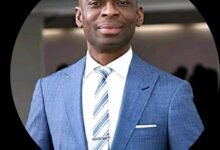PATHWAY TO EXCELLENCE
Success, according to Ralph Waldo Emerson, is “To laugh often and much; to win the respect and affection of children; to earn the appreciation of honest critics; endure the betrayal of false friends and to appreciate beauty. To find the best in better, whether by a healthy child, a garden patch or a redeemed social condition; to know even one life has breathed easier because you have lived. This is to have succeeded.”
We all have different dreams and ideas of what we want to create in our lives. In addition, it is clear that who you know, where you go and your material possessions are not the true measure of personal success. To Anthony Robbins, success is the ongoing process of striving to become more. It is the opportunity to continually grow emotionally, socially, spiritually, physiologically, intellectually, and financially while contributing in some positive way to others. “The road to success is always under construction” he says. “It is a progressive course, not an end to be reached.”
In his book “Unlimited Power” Robbins provides technologies, strategies, skills, and philosophies designed to empower individuals to achieve their personal dreams. He believes that the power to magically transform our lives into greatest dreams lies waiting within us all.
Power could be an emotional word. People’s responses to it are varied. For some people, power has a negative connotation. Some people lust after power. Others feel tainted by it, as if it were something venal or suspect. How much power do you think is right for you to obtain or develop? What does power mean to you?
Robbins does not think of power in terms of conquering people – it cannot be imposed; because that power seldom lasts. Nevertheless, he postulates that power is constant in the world. “You shape your perceptions, or someone shapes them for you. You do what to do, or you respond to someone else’s plan for you.” To him, ultimate power is the ability to produce the results we desire most and create value for others in the process. Power is the ability to change your life, to shape your perceptions, to make things work for you and not against you. Real power is shared, not imposed. It is the ability to direct your own personal kingdom – your own thought processes, your behaviour – so you produce the precise results you desire.
We are living in the information age. The world culture is no more industrial let alone agricultural; it is a communication one. We live in a time when new ideas and movements and concepts change the world almost daily. In such a society, those with information and the means to communicate it have what the kings in some medieval societies used to have – unlimited power. As John Kenneth Galbraith has written, “Money is what fueled the industrial society. But in the information society, the fuel, the power, is knowledge. One has now to see a new class structure divided by those who have information and those who must function out of ignorance. This new class has its power not from money, not from land, but from knowledge.” The exciting thing to note is that the key to power today is available to all. In the modern world, information is the commodity of kings. Those with access to certain forms of specialised knowledge can transform themselves and, in many ways, our entire world.
If information is out there for all of us to access, then why do some people generate fabulous results, while others just get by? Why are not we all empowered, happy, wealthy, healthy and successful?
The truth is that even in the information age, information is not enough. – We need to act on the information. Action is what unites every great success. Action is what produces results. Knowledge is only potential power until it comes into the hands of someone who knows how to get himself to take effective action.
Often we get caught in the mental trap of seeing enormously successful people and thinking they are where they are because they have some special gift. Yet a closer look shows that the greatest gift that extraordinary success people have over the average person is the ability to get themselves to take action. It is a “gift” that any of us can always develop within ourselves.
Linguists believe that we all produce two forms of communication from which our experiences are fashioned. First we conduct internal communications: those things we picture, say, and feel within ourselves. Second, we experience external communications: words, tonalities, facial expressions, body postures, and physical actions to communicate with the world. Every communication is an action, a cause set in motion; and all communications have a kind of effect on ourselves and on others. Communication is power. Those who have mastered its effective use can change their own experience of the world and the world’s experience of them. All behaviour and feelings find their original roots in some form of communication. Those who affect the thoughts, feelings, and actions of majority of us are those who know how to use this tool of power.
Your level of communication mastery in the external world will determine your level of success with others – personally, emotionally, socially, and financially. More important, the level of success you experience internally – the happiness, joy, ecstasy, love or anything else you desire – is the direct result of what is happening in your life – it is your interpretation of what is happening. Successful people’s lives have shown us over and over again that the quality of our lives is determined not by what happens to us, but rather by what we do about what happens.
You are the one who decides how to feel and act based upon the ways you choose to perceive your life. Nothing has any meaning except the meaning we give it. Most of us have turned this process of interpretation on automatic, but we can take that power back and immediately change our experience of the world.
Jim Rohn would observe that “For every disciplined effort there is a multiplied reward.” People who have attained excellence follow a consistent path of success which Robbins calls the “Ultimate Success Formula.” The first step to this formula is to know your outcome that is to define precisely what you want. The second step is to take action – otherwise yours will always be dreams. You must take the types of actions you believe will create the greatest probability of producing the result you desire. The actions we take do not always produce the results we desire, so the third step is to develop the sensory acuity to recognise the kinds of responses and results you are getting from your actions and to note as quickly as possible if they are taking you closer to your goals or otherwise. If what you are getting is not what you want, you need to note what your results have produced so that you learn from every human experience. And then you take the fourth step which is to develop the flexibility to change your behaviour until you get what you want.
If you look at successful people you will find they followed these steps. They started with a target, because you cannot hit one if you do not have one. They take action, because just knowing is not enough. They had the ability to read others, to know what response they were getting. And they kept adapting, kept adjusting, and kept changing their behaviour until they found what worked.
Success is not an accident. The difference between people who produce positive results and those who do not is not some random roll of the dice. There are consistent, logical patterns of actions, specific pathways to excellence that are within the reach of all. We can all unleash the magic within us. We simply must learn how to turn on and use our minds and bodies in the most powerful and advantageous ways.
By Aquasi Addaih




